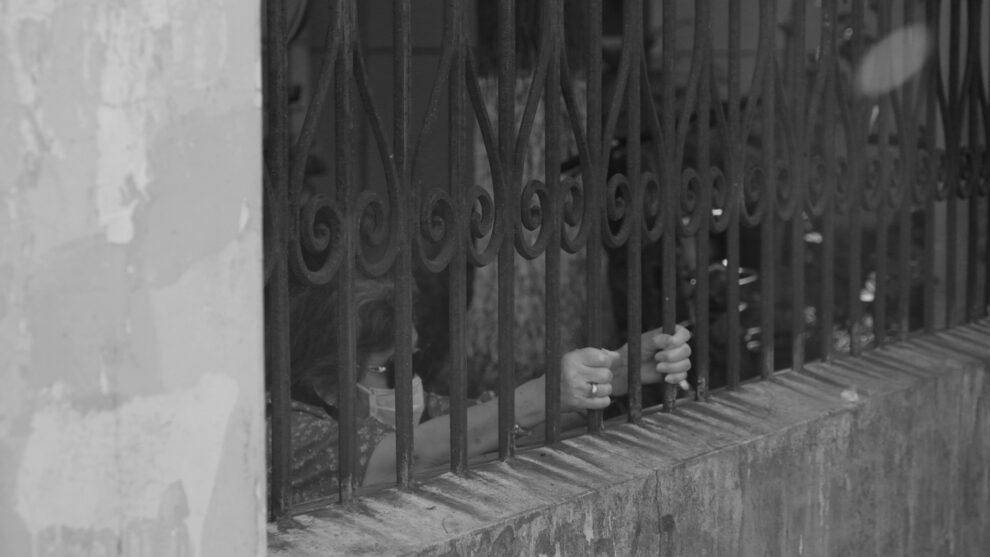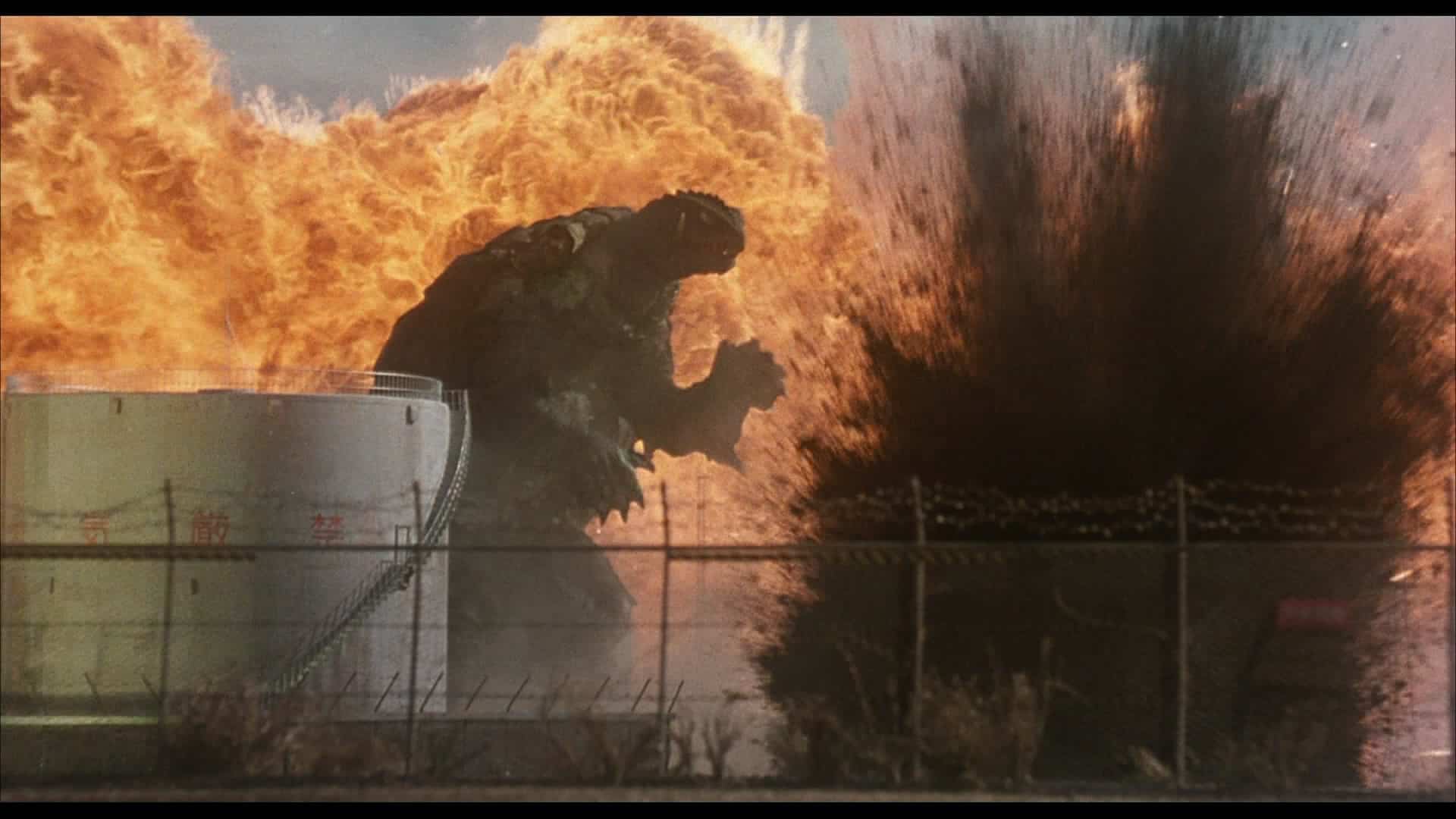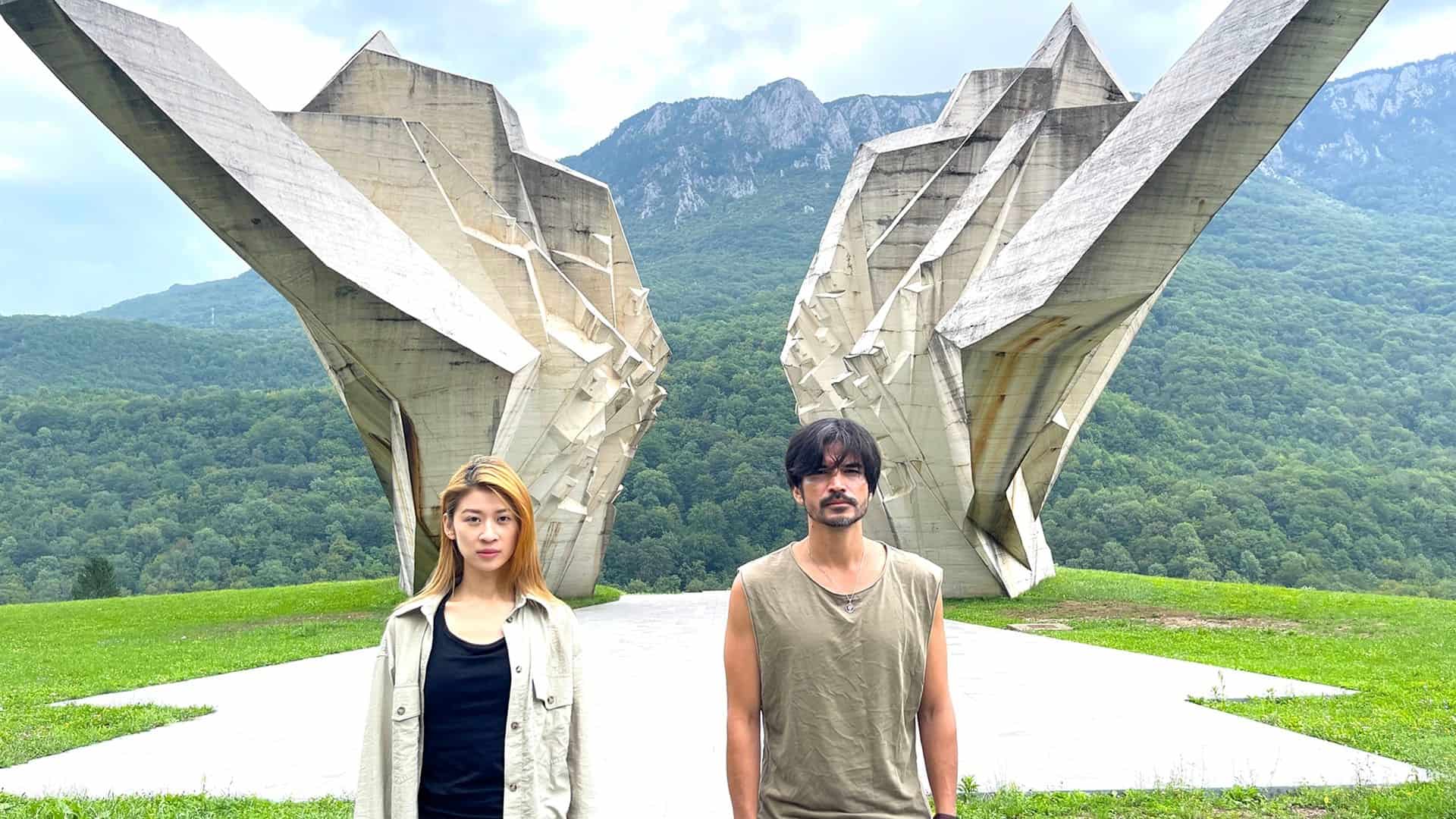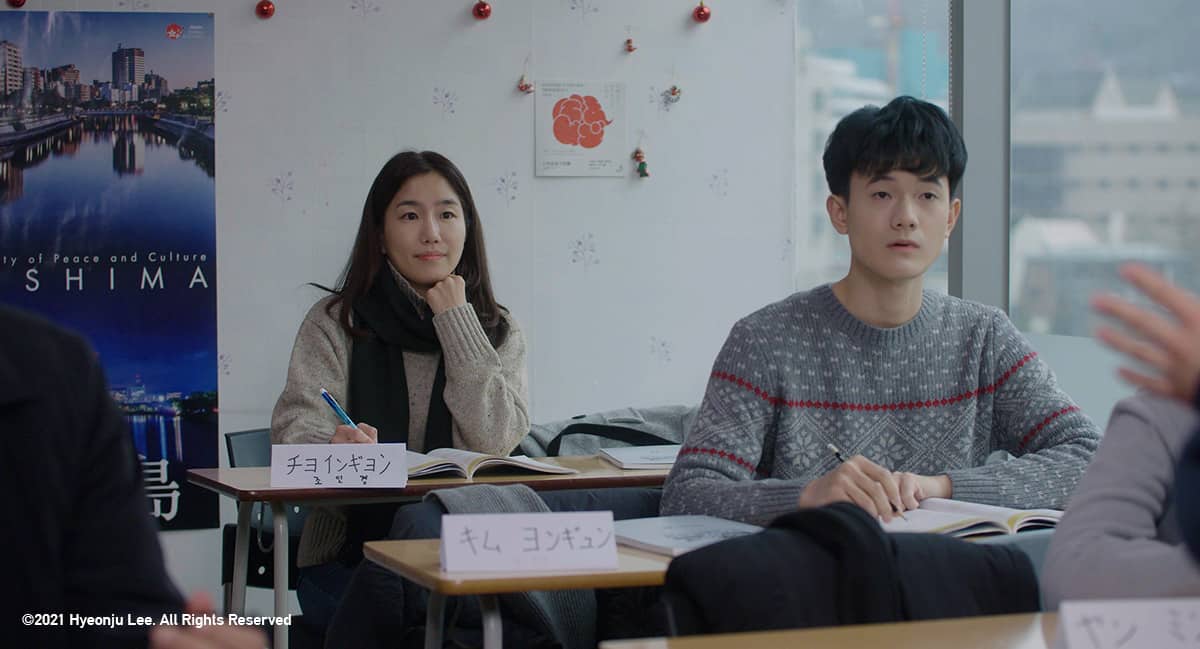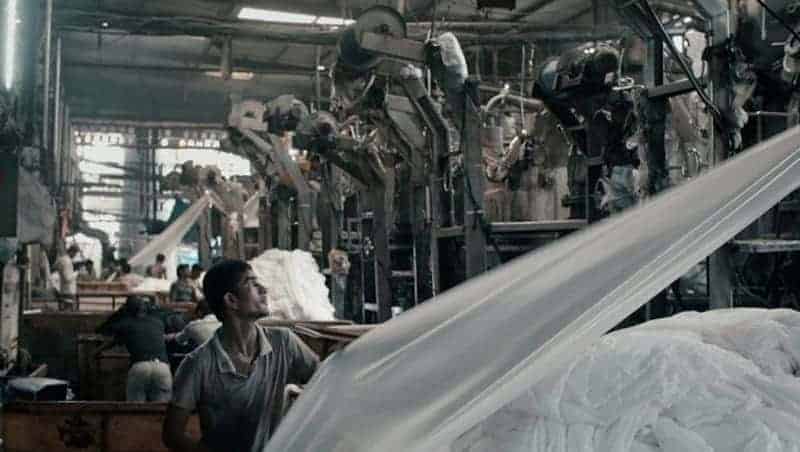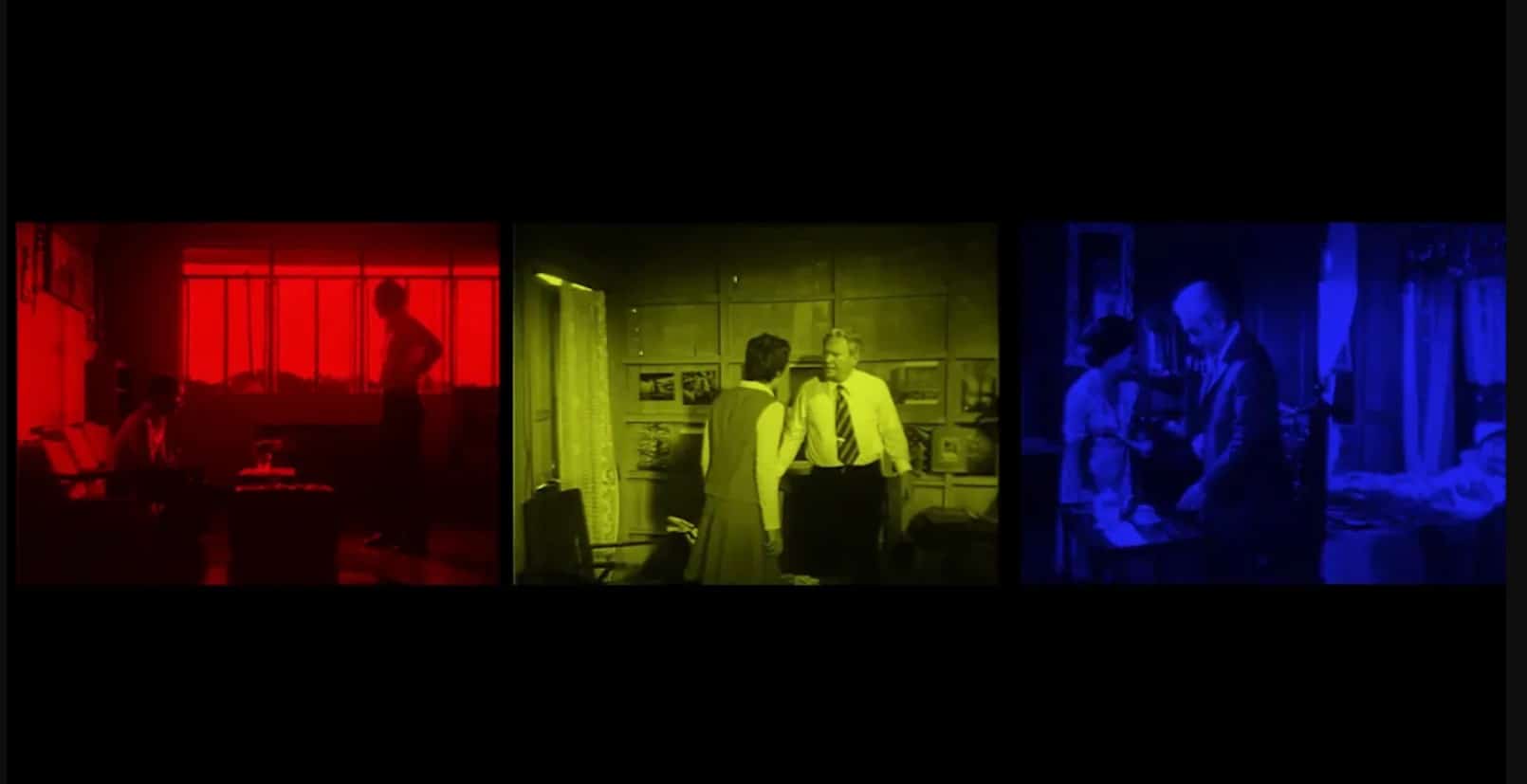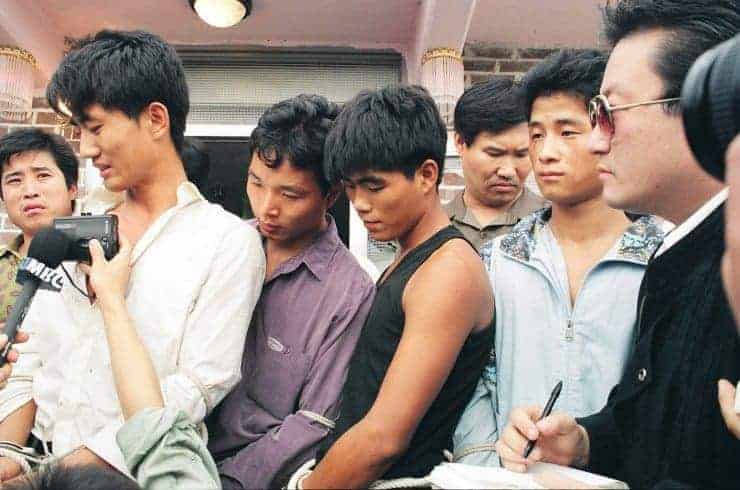Clarissa Zhang is an independent producer and director. She studied screenwriting and directing at the Shanghai Film Art Academy and graduated from the Berlinale Talents and Tokyo Talents film programs. She is currently working on her feature documentary debut “When Clouds Gather”. “Shanghai Quarantopia” her latest documentary, is dedicated to those who survived Shanghai in the Spring of 2022 and screened at Ji.hlava last year.
Shanghai Quarantopia review is part of the Submit Your Film Initiative

The film begins with a man with a mask walking in the dark, during the night, followed by two more people doing the exact same thing, in a rather visually impressive scene that soon gives its stead to black-and-white imaging. Narration from the director mentions that the film is shot during lockdown, with her stating that what we are seeing was captured by her camera during the time. Shots of a park, the laundry across the street and the blurry image of the apartment the narrator is staying follow, with her declaring that what she is witnessing looks like the place she used to live in, but the circumstances have changed it to something else, with the titular term of Quarantopia sounding quite accurate here.
The sound of the authorities from the speakers urging the people to get up and do their rapid antigen tests are the only ones that break the silence. Her window essentially functions as a cinema screen, with the area she lives in and her neighbors being the protagonists of a movie whose script was forced upon them. The lack of communication is actually accentuated by the fact they all watch each other frequently in their quarantined setting, but never exchange a single word. At the same time, the harshness of the people handling the pandemic, who themselves are stranded and filled with angst for doing a job that essentially seems impossible, is also highlighted in the story. That people walk in circles in the small area they are free to do so is also quite indicative of the whole situation.
Somewhere among all these, however, Clarissa Zhang still manages to be a filmmaker, recording everything that is happening, which actually gets more and more intense as time passes, with the yelling of people in search of something to eat or drink, or even medicine for their sick children soon becoming part of the terrifying narrative. Shanghai becomes more and more a dystopia, and the combination of images, narration, and sound here communicates the fact in the most eloquent fashion, with the first element retaining the artistic approach of a documentary that seems to be forcibly experimental.
The fact that people start getting used to this situation, including a waiting that never seems to end, emerges as equally shocking. A girl catching butterflies and trapping them in a plastic box presents, in color this time, an apt metaphor for the people in Shanghai. concluding the short in the most eloquent fashion.
Apart from the images presented here, the crisp monochrome that dominates the 13-minute short also works quite well, with the cinematography in general emerging as impressive, and the sound, both natural and the narrating voice of Zhang, complementing the visuals in the best fashion. The few colored scenes are well embedded in the narrative, with Zhang's editing being among the best parts of the movie, additionally for the rather fittingly fast pace.
“Shanghai Quarantopia: is an impressive documentary short, which manages to be equally artistic, informative, and to fulfil one of the main purposes of the medium, of preventing people from forgetting, with the note at the end of the movie, stating that the footage was captured before they were deleted from the Web, highlighting the last part quite eloquently.


